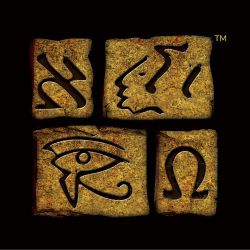
FAIR is a non-profit organization dedicated to providing well-documented answers to criticisms of the doctrine, practice, and history of The Church of Jesus Christ of Latter-day Saints.
SpencerMarsh (talk | contribs) (→Question: Does the Book of Mormon’s reference to “slippery treasures” stem from Joseph Smith’s involvement in money digging and the occult?) |
SpencerMarsh (talk | contribs) (→Review of the Criticism) |
||
| Line 3: | Line 3: | ||
==Question: Does the Book of Mormon’s reference to “slippery treasures” stem from Joseph Smith’s involvement in money digging and the occult?== | ==Question: Does the Book of Mormon’s reference to “slippery treasures” stem from Joseph Smith’s involvement in money digging and the occult?== | ||
===Review of the Criticism=== | ===Review of the Criticism=== | ||
| − | Some readers of the Book of Mormon and other critics of The Church of Jesus Christ of Latter-day Saints have criticized the Book of Mormon’s reference to “slippery treasures”.<ref>Robert N. Hullinger, ''Mormon Answer to Skepticism: Why Joseph Smith Wrote the Book of Mormon'' (St. Louis, MO: Clayton Publishing House, 1980), 105; D. Michael Quinn, ''Early Mormonism and the Magic World View, 2nd ed.'' (Salt Lake City, UT: Signature Books, 1998), 61, 196–197.</ref> This reference has been cited as evidence to them that the supposed “magic world view” of Joseph Smith and perhaps his | + | Some readers of the Book of Mormon and other critics of The Church of Jesus Christ of Latter-day Saints have criticized the Book of Mormon’s reference to “slippery treasures”.<ref>Robert N. Hullinger, ''Mormon Answer to Skepticism: Why Joseph Smith Wrote the Book of Mormon'' (St. Louis, MO: Clayton Publishing House, 1980), 105; D. Michael Quinn, ''Early Mormonism and the Magic World View, 2nd ed.'' (Salt Lake City, UT: Signature Books, 1998), 61, 196–197.</ref> This reference has been cited as evidence to them that the supposed “magic world view” of Joseph Smith and perhaps his associates influenced the composition of the Book of Mormon for those portions of the Book of Mormon that reference such "slippery treasures." |
===Book of Mormon Central: Why Did Samuel Say the Wealth of Some Nephites Would Become “Slippery”?=== | ===Book of Mormon Central: Why Did Samuel Say the Wealth of Some Nephites Would Become “Slippery”?=== | ||
FAIR Answers—back to home page
Some readers of the Book of Mormon and other critics of The Church of Jesus Christ of Latter-day Saints have criticized the Book of Mormon’s reference to “slippery treasures”.[1] This reference has been cited as evidence to them that the supposed “magic world view” of Joseph Smith and perhaps his associates influenced the composition of the Book of Mormon for those portions of the Book of Mormon that reference such "slippery treasures."

This charge/question has been examined in detail by Book of Mormon Central. Readers are invited to become acquainted with their material to address the question.
Book of Mormon Central:
Samuel the Lamanite’s famous prophetic warnings are found in Helaman 13–15. His pronouncement began with a massive rebuke of the pride, greed, iniquities, priestcrafts, ingratitude, and foolishness of wicked Nephites who were willing to embrace false prophets while utterly rejecting the righteous prophets (Helaman 13:25–29). Samuel pulled no punches. In this context, he used the word “slippery” three times, and the word “slipped” once (vv. 30–36).
Notes

FAIR is a non-profit organization dedicated to providing well-documented answers to criticisms of the doctrine, practice, and history of The Church of Jesus Christ of Latter-day Saints.
We are a volunteer organization. We invite you to give back.
Donate Now